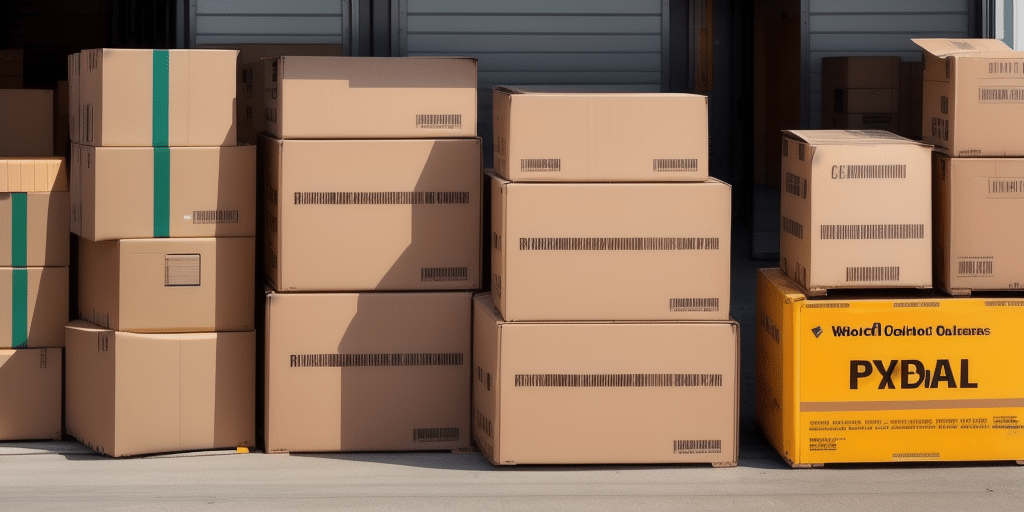Understanding the Difference Between Declared Value and Customs Value in UPS Worldship
When shipping with UPS Worldship, it is crucial to understand the distinction between declared value and customs value. These values determine the duty and taxes applied to your shipment and influence the level of insurance coverage you receive. This article delves into both values, explaining their significance, how to determine them, and best practices for managing them effectively.
Why Knowing the Difference Between Declared Value and Customs Value is Important
Declared value and customs value are often confused, but they serve different purposes:
- Declared Value: The value declared by the shipper for insurance purposes.
- Customs Value: The value used by customs officials to calculate duties and taxes.
Incorrectly declaring these values can lead to unexpected charges, delays in customs clearance, and inadequate insurance coverage. Additionally, discrepancies between declared and customs values may trigger inspections or penalties from customs authorities.
What is Declared Value in UPS Worldship?
The declared value is the monetary value the shipper assigns to the goods being shipped, which determines the level of insurance coverage. In UPS Worldship, you can either manually enter this value or have it automatically calculated based on the item's cost.
It is essential to declare the full replacement cost of the items, inclusive of taxes and fees related to acquisition, but excluding shipping and handling costs.
For high-value shipments, be aware that UPS may require additional documentation or verification to ensure accurate valuation.
How to Determine the Declared Value of Your Shipment
Accurately calculating the declared value involves:
- Determining the full replacement cost of the items.
- Including any applicable taxes or fees.
UPS imposes maximum declared value limits: up to $50,000 for domestic shipments and $100,000 for international shipments. Shipments exceeding these limits may require purchasing additional insurance.
Maintaining documentation, such as invoices or receipts, is recommended to support the declared value in case of disputes or claims.
What is Customs Value in UPS Worldship?
The customs value is the value assessed by customs officials to determine the duty and taxes payable on a shipment. It encompasses the cost of the goods plus any additional shipping or handling fees.
Customs officials may cross-verify the declared value against market prices to ensure accuracy. Under-declaring can result in fines, penalties, or even seizure of goods.
Different countries have varying regulations regarding the customs value, especially for specific categories like electronics or luxury items. It's imperative to understand the destination country's regulations to avoid complications.
How to Calculate the Customs Value of Your Shipment
To accurately calculate the customs value:
- Include the total value of the goods being shipped.
- Add any shipping or handling fees associated with the shipment.
Additional charges such as insurance or licensing fees should also be included to ensure comprehensive valuation for customs purposes.
Keeping detailed records of your calculations can facilitate smoother customs clearance processes and provide necessary documentation if requested by customs officials.
Understanding the Relationship Between Declared Value and Customs Value
While both values are used in the shipment process, they serve distinct roles:
- Declared Value: Influences insurance coverage.
- Customs Value: Determines duties and taxes.
It's possible for these values to differ. For instance, the declared value might be higher to secure better insurance coverage, while the customs value strictly reflects the actual cost for duty calculations.
Common Mistakes to Avoid
Avoid the following errors when entering declared and customs values in UPS Worldship:
- Inaccurate Item Descriptions: Provide precise descriptions to facilitate correct duty and tax assessment.
- Mismatched Values: Ensure that the declared and customs values are consistent to prevent suspicions of under-declaration.
Tips for Accurately Entering Declared and Customs Values
Follow these recommendations to ensure accuracy:
- Calculate the full replacement cost of items.
- Include all relevant taxes and fees.
- Understand the destination country's regulations.
- Maintain comprehensive documentation for each shipment.
How to Edit or Update Values in UPS Worldship
If adjustments are needed, access the shipment details within UPS Worldship and amend the declared or customs values accordingly. Always double-check entries to prevent errors that could lead to additional charges or delays.
The Impact of Incorrect Values on Your Shipment
Incorrectly entered declared or customs values can result in:
- Unexpected financial charges.
- Delays in shipment processing.
- Insufficient insurance coverage.
- Potential legal penalties.
Best Practices for Managing Declared and Customs Values
Implement the following strategies for effective management:
- Regularly review and update your valuation procedures.
- Train staff on the importance of accurate data entry.
- Consult with customs experts or freight forwarders to stay compliant with international shipping laws.
Adhering to these best practices ensures that your shipments are processed efficiently, reducing the risk of unexpected costs and delays. Accurate declared and customs values are fundamental to successful international shipping with UPS Worldship.




















